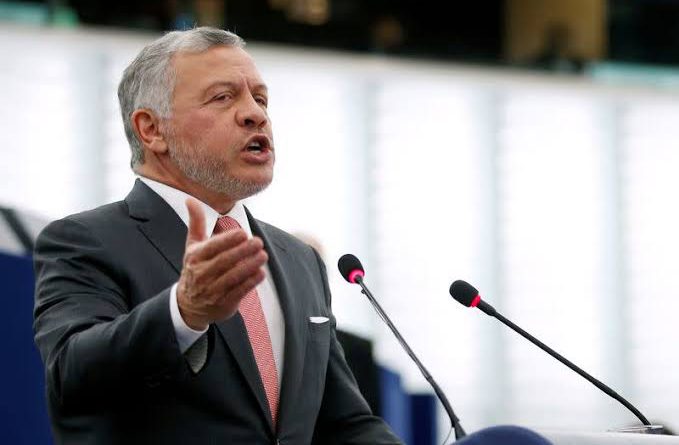Jordanian military tells king’s half-brother to halt actions related to country’s stability
Amman (Reuters) – Jordanian King Abdullah’s half-brother and former Crown Prince Hamza bin Hussein has been told to halt actions used to target the country’s “security and stability”, the military said on Saturday.
In a statement published on the state news agency, it said this was part of a broader, ongoing security investigation in which a former minister, a member of the royal family and unnamed others were detained.
Army chief Yusef Huneity denied reports that Prince Hamza had been arrested but said he was told to “stop activities that are being exploited to target Jordan’s security and stability”. He did not specify what such actions were.
Two people familiar with the situation told Reuters security forces had arrived at Prince Hamza’s house and begun an investigation. King Abdullah dismissed Hamza as heir to the throne in 2004 in a move that consolidated his power.
People familiar with the affair said the crackdown could have been related to a plot to destabilise Jordan, a key ally of the United States.
The Washington Post said Jordanian authorities detained Hamza and arrested nearly 20 other people after what officials called a “threat to the country’s stability”.
A former U.S. official with knowledge of events in Jordan said the plot did not involve a “physical coup.” Rather, he said, those involved were planning to push for protests that would appear to be a “popular uprising with masses on the street” with tribal support.
Prince Hamza is not seen as a major threat to Jordan’s monarchy and he has been marginalised for years. But the authorities have become increasingly concerned with his efforts to build ties with disgruntled figures within powerful tribes.
These people known as the Herak have in recent weeks called for protests against corruption and the authorities had cracked down on several demonstrations, detaining dozens.
Tribes who dominate the security and army form the bedrock of support for the kingdom’s Hashemite monarchy.
The state news agency said Bassem Awadallah, a U.S.-educated long-time confidant of the king who later became minister of finance, and Sharif Hassan Ben Zaid, a member of the royal family, were detained along with other unnamed figures.
It gave no details.
The Saudi royal court voiced its “full support” for King Abdullah and all decisions taken by him to maintain security and stability. Egypt, Lebanon and Bahrain also stood by him.
Government officials were not immediately available for comment.
Arrests of top officials and royal family members are rare in Jordan, seen as one of the Arab world’s most stable countries.
Political Wilderness
Prince Hamza, who had been groomed by his mother Queen Noor to succeed his late father King Hussein, has been pushed into the political wilderness since he was sacked as crown prince.
Opposition figures have rallied around him, a move that has been viewed with displeasure by the king, officials familiar with the situation said.
Abdullah succeeded his father King Hussein, who ruled Jordan for nearly five decades.
The Jordanian Hashemite dynasty’s tradition under the 1952 constitution gives the succession to the eldest son but the monarch retains the option of naming a brother.
King Abdullah has succeeded in bringing political stability to the country and gaining stature as a prominent Arab leader whose message of moderation has found an echo, especially in Western forums.
Jordan’s powerful intelligence agency, with a pervasive influence in public life, has played a bigger public role since the introduction of emergency laws at the outset of the coronavirus pandemic last year.
Jordanian riot police last month broke up protests in Amman and other cities called to mark the 10th anniversary of Arab Spring pro-democracy demonstrations, and authorities detained dozens of activists, witnesses said.



